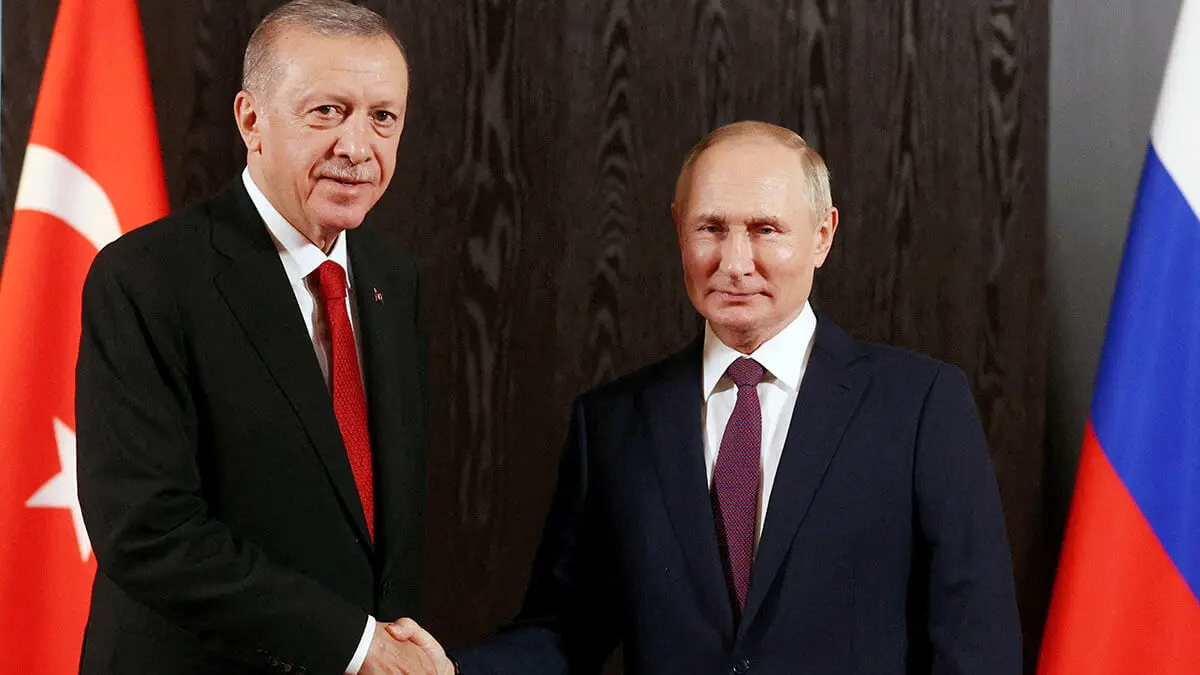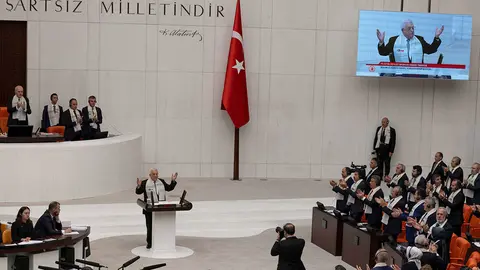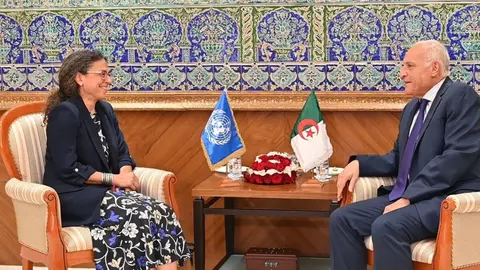Türkiye: versatile actor

On September 3, the spokesperson for Turkey's ruling Islamist Justice and Development Party (AKP) announced that there had been "no concrete progress" in its application to join the BRICS alliance, but that the process was continuing. "Our request on this issue is clear. This process is underway within this framework, but there is no concrete progress in this regard," said Omer Celik, in statements reported by Reuters.
The next day, a senior Kremlin official announced that Turkey, a member of NATO, had requested entry into the BRICS bloc of developing economies, an instrument with which Russia and China seek to counteract the global influence of the West. Yuri Ushakov, foreign affairs adviser to President Vladimir Putin, told reporters that Turkey had submitted a request “for full membership” of the bloc that Russia presides over this year, and that such a proposal will be considered.
Ankara's new diplomatic push reflects its aspirations to “square the circle” by cultivating ties with all parties in a multipolar world, while continuing to fulfill its obligations as a key member of the North Atlantic Treaty Organization, according to statements of spokespersons, another matter is whether such compliance is politically possible. Turkey, located between Europe and Asia, submitted a request to join the BRICS a few months ago, among other reasons, due to frustration resulting from the lack of progress in its attempt, for decades, to join the European Union. The request is also, in part, a result of disagreements with NATO allies after Turkey maintained close ties with Russia following the 2022 invasion of Ukraine and threatened Israel in the Gaza war.
The BRICS alliance was founded in 2006 and consists of Brazil, Russia, India, China, South Africa, Ethiopia, Iran, Egypt and the United Arab Emirates. Saudi Arabia have said they are considering joining, and Azerbaijan and Malaysia have submitted formal requests. Moscow and Beijing, in particular, are interested in further expanding the group as they seek to counter Western economic dominance, and it would be a major diplomatic coup. if Turkey, a NATO ally and candidate for EU membership, joined.
The BRICS present themselves as an alternative to what their members consider Western-dominated institutions, such as the World Bank and the International Monetary Fund (IMF). New members could potentially gain access to financing through their development bank, as well as expand their political and trade relationships.
Turkey's ruling AKP Party has repeatedly accused Western countries of thwarting Turkey's aspirations for a self-sufficient defense industry and a strong economy. President Erdoğan has repeatedly called for a reform of the United Nations Security Council to expand the number of its five permanent members and has also expressed interest in joining the Shanghai Cooperation Organization (SCO), created by Russia and China as NATO rival. “We do not have to choose between the European Union and the Shanghai Cooperation Organization, as some claim,” Erdoğan said. “On the contrary, we need to develop our relationships with both organizations and with others on a mutually beneficial basis.”
Erdoğan has called Ankara's growing proximity to NATO rivals, particularly Russia and China, an asset for the Alliance and a way to broker peace in several key regions. While Turkey and Russia often find themselves on opposite sides of conflicts, such as in Ukraine, the Caucasus, Syria and Libya, Erdoğan has done his best to maintain a cordial relationship with President Vladimir Putin and position himself as a potential mediator. In conflicts, such as Ukraine, the Caucasus, Syria and Libya, Erdoğan has done his best to maintain a cordial relationship with President Vladimir Putin and position himself as a potential mediator.
Just days before arriving in Washington for the July NATO summit, Erdoğan was in Kazakhstan for the SCO Summit, signaling Turkey's desire to upgrade to permanent membership. On the sidelines of the Summit, Erdoğan met with Chinese President Xi Jinping and Putin.
The juxtaposition of Erdoğan's maneuvers in Kazakhstan with his brazen and provocative behavior at the NATO Summit is clear. Turkey's accelerated pursuit of integration into these blocs may be, in part, an emotional reaction to the rejection of EU admission, but it is also representative of the changing worldview of Erdoğan, who has publicly declared that the center of The world's economic gravity is shifting eastward and has rebuked the West's limited perception of Russia and China as adversaries. Turkey seeks to be a major player in a multipolar world rather than a state confined and defined by the political and economic demands of Western powers.
Turkish ambition is a challenge for the West. The only Muslim-majority NATO member country stretching across Europe and Asia, with coastlines hugging the Mediterranean and Black Seas and straits connecting the two. It is a geography of vital strategic interest, as the war in Ukraine extends across the Black Sea, north of Turkey, while the war in Gaza threatens regional stability in the Middle East, south of Turkey.
This is not the first time that Ankara has threatened NATO security and interoperability. Between 2022 and 2023, Ankara blocked the consensus of NATO members on the accession of Finland and Sweden. This decision was simply an issue that Erdoğan took advantage of to coerce the United States to authorize the sale of F-16 fighter jets to Turkey.
Discrepancy and disagreement have long marked Erdoğan's relations with the West, a truculence that the Turkish president sometimes proudly displays on the international stage.



